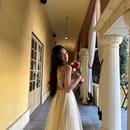What started out as a trend to recommend different books to other readers became a marketing tool for authors which thus has affected the overall book industry.
Popular apps such as TikTok, Instagram, and Youtube (respectively known as “BookTok”, “Bookstagram”, and “BookTube” in the book community) have exploded in popularity. “BookTok” and “Bookstagram” focus on short-form content, reels that capture a book’s aesthetic with quotes, pictures, and music. On the other hand, BookTube focuses on long-form videos to recommend and review books.
This form of content has helped many people fall in love with reading again. It has become easier to find and recommend books based on someone’s interests. While this way of sharing books made it easier for readers to find books based on their interests, many recommendations became repetitive.
The same few authors and books were consistently recommended over a long period of time.
Authors have also picked up on these trends; some even use these trends as a form of marketing. While this has benefitted many authors, others have begun to suffer from this tactic. Some books began to be based entirely on these tropes or quotes they can use in these videos rather than the story they were telling.
Popular tropes, such as Enemies to Lovers, Grumpy x Sunshine, Friends to Lovers, etc., have dominated the bestsellers list.
Barnes and Noble have set up tables dedicated to these popular books and while that is amazing for many authors, Barnes and Noble have allegedly begun to stop selling many author’s books if they’re not considered popular enough.
In a Twitter thread posted by Gabi Burton, Burton states that “Barnes and Noble is refusing to stock most authors on shelves. It disproportionately affects marginalized authors, debuts, and MG [Middle-Grade Books].” The thread later continues with many authors and booksellers speaking out about the new change in policy.
This policy affects which books will circulate on social media, therefore the variety of books being shared will shrink.
A new precedent has been set with the influence of BookTok. “Lightlark” by Alex Aster, is an example of this new wave in social media authors. “Lightlark” was promoted through TikTok by Aster’s TikToks, which focused on the tropes and quotes in the book. Yet, Aster began to face backlash as many readers felt misled by Aster’s marketing. Readers who received an Advanced Reader Copy (also referred to as ARCs), were quick to point out that such tropes and quotes were not in the book.
“Lightlark” points out many of the problems that these marketing tactics face. While tropes are important and fun, the book’s focus on tropes heavily outweighs the plot. In this review, A. M. Blaushild goes over the fundamental flaws of “Lightlark”, and thus the problem with many books that are written for tropes and not with tropes.
The issues from social media marketing may not be new issues for the book community, but the marketing exacerbates the issues many authors already face. Authors are rushing to create books with these popular tropes. Many other authors are struggling to get their books published and sold because they cannot “prove” their popularity.
These trends, while started with good intentions, to spread and showcase reader’s favorite books, have changed the game for authors and readers alike.
Do you use social media for book recommendations? Let us know @HerCampusSJSU


